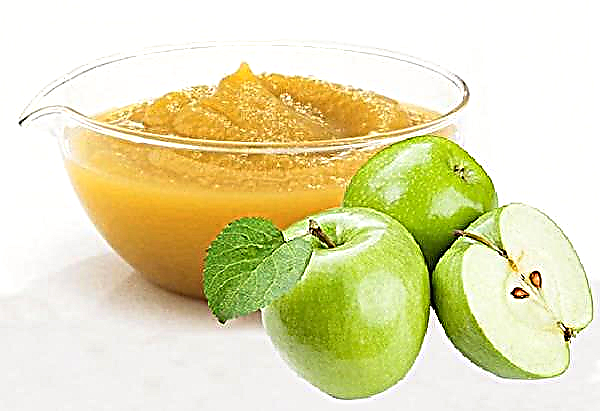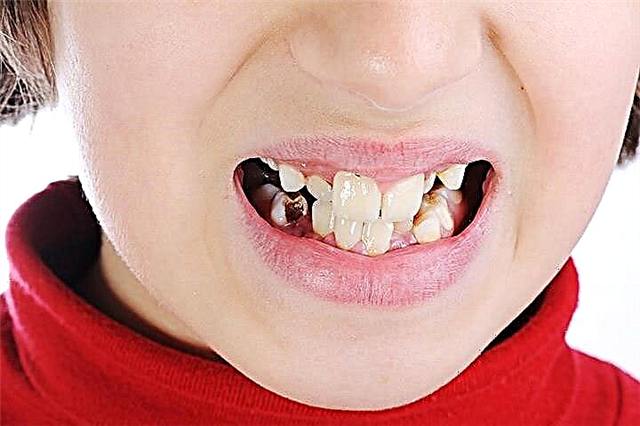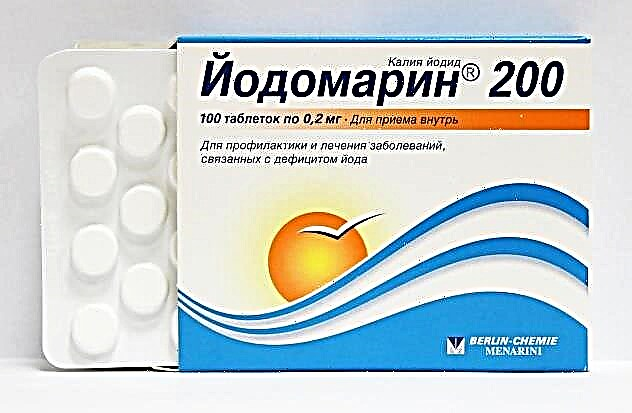Currently, for most parents, the question of how to raise the immunity of a child is very relevant. This article will discuss the features of the formation and functioning of the immune system in children, as well as the most common methods of immunocorrection used in childhood.
Immunity of the newborn
The birth of a child is always accompanied by a meeting of children's immunity with foreign substances. The microflora of the gastrointestinal tract is the strongest source of antigenic stimulation.
The immunity of a newborn is characterized by the gradual formation of relationships between its individual components and an increase in functionality.
Let's list the main links of the newborn's immunity:
- Phagocytosis system... Leukocytes of newborns have a reduced ability to destroy bacteria, so babies are at risk of severe bacterial infections. It's all about the insufficient activity of opsonins (substances (antibodies) that enhance phagocytosis), the amount of which is interrelated with the body weight of newborns. A significant decrease in opsonins is observed in premature infants and children with intrauterine growth retardation.
- Complement protein system... In infants, the content of complement proteins is only half of the amount of these serum elements in the mother's blood, which significantly affects the ability of the immune system to resist infection. By the 6th day of life, a physiological increase in the content of proteins of the complement system in the blood is observed.
- T cell system... The number of T-lymphocytes in the blood of newborns is sufficient. However, the functional capacity of these blood cells is insufficient to defend against bacteria.
- B-cell system of the newborn... There is no B-lymphocyte deficiency. But there are more immature populations than adults.
- Immunoglobulins:
- immunoglobulins of newborns are mainly represented by the G-fraction;
- immunoglobulins M are contained in the range of 0.25 - 0.30 g / l of serum;
- immunoglobulins A are completely absent, which is manifested by the unprotected mucous membranes of the newborn. Immunoglobulin A begins to be synthesized only 2 weeks after birth.
 Immunoglobulins G of a newborn baby are maternal antibodies to bacterial and viral particles that a woman has come into contact with before and during pregnancy. Lack of immunoglobulins is the most common cause of immune disorders in young children.
Immunoglobulins G of a newborn baby are maternal antibodies to bacterial and viral particles that a woman has come into contact with before and during pregnancy. Lack of immunoglobulins is the most common cause of immune disorders in young children.
A newborn is a critical period for the formation of immunity, therefore, for any minor cold, the parents of the child should be careful not to miss the development of serious complications with the formation of an immunodeficiency state.
Important! The immunity of a premature newborn is imperfect. The defenses of the immunity of babies born prematurely are significantly reduced. This is manifested by a stronger susceptibility of premature infants to infectious diseases in comparison with full-term infants.
Formation of immunity in children
- starting from 2 months, the breakdown of maternal immunoglobulins occurs. Accordingly, the content of immunoglobulin G decreases in the child's blood. During this period, vaccination is the most powerful factor influencing the development of immunity;
- in the period from 2 to 6 months, due to the lack of antibodies in the child, increased sensitivity to parainfluenza, influenza, RS virus;
- at the age of 5 - 6 years, T-dependent zones of lymphoid organs are actively developing, which is manifested by an increase in lymph nodes. At this age, latent viral infections are common, weakening the immune system.
Primary vaccination with DPT causes the synthesis of immunoglobulins that do not have an immunological memory, therefore, revaccination of the child in a timely manner is important.
The role of breastfeeding in the development of newborn immunity
With the mother's milk, antibodies and other components of the immune system are transferred to the child, which protects the newborn from serious infectious diseases. Prolactin and progesterone form the secretory immune system in the mother's breast.

Through milk, the child receives phagocytes and immunoglobulin A, which protects the epithelium of the intestinal wall from microbial agents.
Also, breastfeeding helps to protect children under 1 year old from enteropathogenic serotypes of E. coli, salmonella, pneumococci, streptococci, shigella.
A breastfed baby is well protected from intestinal infections. And it's all thanks to maternal antibodies.
How can the immunity of an infant be increased?
Having considered and understood the features of the immune system of the newborn, it is not difficult to assume the goals of immune therapy in order to properly increase the immunity of the baby.
The founders of Russian pediatrics argue that young children cannot help but get sick, but these diseases should not be very frequent and severe.
For frequent and severe infections, the administration of immune drugs is indicated.
Features of immunotherapy in pediatrics
Features of immunomodulatory therapy in childhood are:
- stages;
- continuity;
- continuity;
- individual approach.
Types of drugs used in pediatric practice to enhance the immunity of an infant
Grippferon is a recombinant interferon. Increases the antiviral activity of the immune system. Able to suppress the multiplication of viruses. It is especially effective during a flu epidemic. The drug increases the content of immunoglobulin A in the nasal secretion and destroys the causative agent of the disease. It is also effective against adenovirus infection.
Viferon... In infants, it is more often used in candles of 150,000 IU. It activates the antiviral defense of the body, reduces the period of fever in acute respiratory viral infections in newborns, reduces the severity of inflammation of the mucous membranes. Able to increase the child's immunity against herpesvirus diseases.
 Aflubin... Homeopathic medicine has a complex effect on the immune system. Highly effective in routine prevention of acute respiratory infections.
Aflubin... Homeopathic medicine has a complex effect on the immune system. Highly effective in routine prevention of acute respiratory infections.
Anaferon... Created on the basis of ultra-low doses of antibodies. Can be used from 6 months of age. Effective for influenza and SARS.
Broncho-munal P... Belongs to the group of bacterial lysates of systemic action. It is used in the correction of immunity in children with frequent and long-term illnesses. The anti-infectious effect of Broncho-Munal is associated with an increase in the content of immunoglobulin A in the blood serum and the secretion of the upper respiratory tract.
In children suffering from frequent lung diseases, it reliably reduces the number of exacerbations during the year. In children with allergies, Broncho-Munal can reduce the number of episodes of bronchial obstruction.
IRS-19... It is used in pediatric practice from 3 months of age. The preparation contains 19 strains of microorganisms that cause ARVI in children. The drug is used to strengthen the immune system in an infant by reducing the swelling of the nasal mucosa, thinning mucus and facilitating its outflow.
The strengthening effect on the immunity of the newborn is manifested in protection against formidable complications in the form of otitis media and sinusitis. For prevention, it is recommended to use IRS-19 for a month, in dosages depending on the age of the baby.
Imudon... The drug Imudon helps to maintain the immunity of children during the period of seasonal rise in respiratory diseases. The baby can be given this drug, starting from the age of 3.
Imudon is a mixture of lysates of bacteria and fungi, most often found in the oral cavity, that is, it is effective against most pathogens of acute respiratory infections.
Even after the first course of the drug, the state of the microflora of the oropharynx is restored, which helps to maintain the child's immunity for a long time. We recommend two courses of treatment within six months.
Polyoxidonium... The drug affects all parts of the immune system. In infants, to increase immunity, it is more often used in the form of a solution for intranasal use. Effective in bronchial asthma.
Vaccination
Children who often suffer from infectious diseases of the upper respiratory tract are recommended to be vaccinated against the most serious diseases.

Raising immunity against pneumococcal disease, hemophilus influenza and influenza is important for all immunocompromised children.
How to strengthen a child's immunity without medication?
Only a competent allergist-immunologist can increase the immunity of children with the help of drugs. Parents, on the other hand, should know the basic ways to strengthen the immune system of a child under one year old using non-drug methods. How to improve immunity in a baby without resorting to the use of immunomodulators?
- hardening... An effective and affordable method. The main thing is to observe the principle of gradualness and not overdo it. Summer is the best time of the year to start hardening procedures;
- nutritious healthy foodbalanced in terms of energy value;
- vitamin therapy.
Vitamins can be bought not only at the pharmacy! The indicators of the immune system can steadily increase when eating foods rich in vitamin C. To increase immunity, the child should be given black currant berries, rosehip broth and citrus fruits;
- maritime climate... Sea air, rich in salts and ozone, has a beneficial effect on the immune system;
- Exercise therapy and massage.
The role of dysbiosis in the formation of the child's immunity
The normal composition of the intestinal microflora of a child is an integral part of strong immunity. Up to 80% of an infant's immune cells are found in the intestinal mucosa.
As the child grows, the intestinal lymphoid tissue is stimulated with foreign substances and the synthesis of immunoglobulins, proteins of the complement system, increases.
Intestinal dysbiosis in a newborn is a condition characterized by a change in the quantitative and qualitative composition of the intestinal microflora.
The drugs used to correct the intestinal microflora can also be attributed to the group medicines that affect the immune system of an infant:
- probiotics and prebiotics (Bifiform, Hilak-forte, Linex, Acipol, Bifidumbacterin);
- immunomodulators (KIP, Kipferon, Likopid, Sodium Nucleinate).
Conclusions
- Newborns are a critical period for the formation of immunity in a child.
- Breastfeeding is a necessary link in the formation of strong immunity in infants.
- Young children cannot help but get sick, but these diseases should not be very frequent and severe. For frequent and severe infections, the administration of immune drugs is indicated.
- The normal composition of the intestinal microflora of a child is an integral part of strong immunity.



